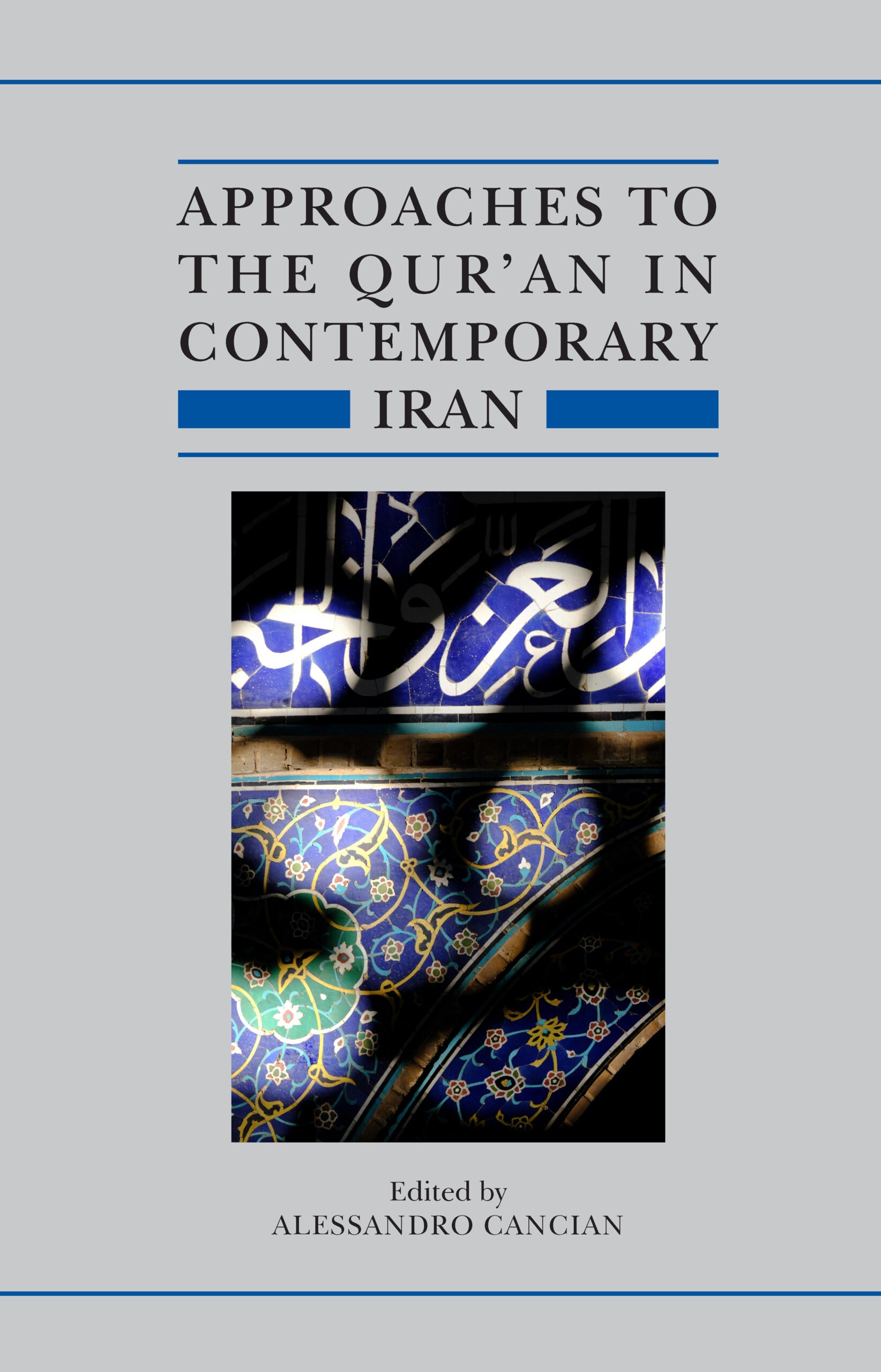Approaches to the Qur’an(also Koran. Arabic term meaning, ‘recitation’ or ‘scripture’): Muslims believe that the Holy Qur’an contains divine revelations to the Prophet Muhammed received in Mecca and Medina over a period of… More in Contemporary Iran explores the importance of the reception of the Qur’an in the religious, intellectual, political and artistic discourses in modern and contemporary Iran, from the nineteenth century to the present.
The chapters included in the volume have been written by some of the most authoritative specialists in the modern history of Iran. Their contributions span a wide range of subjects and themes, covering such varied ground as the examination of the trends in Qur’anic exegesis that are currently prominent in Iran, the use of Qur’anic themes in contemporary Iranian cinema, the concept of revelation as the basis of diverse political trends in the Islamic Republic of Iran, Sufi mystical interpretations of the Qur’an, the use of the Qur’an in the arts, the Qur’an as a living scripture in specific intellectual and social circles, and case studies of individual intellectuals.
Through this wide-ranging survey, the book aims to become a reference for anyone interested in the Qur’an’s imprint on the religious, political, cultural and anthropological history of modern and contemporary Iranian society.
Notes on Contributors
Note on Transliteration, Conventions and Abbreviations
Preface and Acknowledgements
Map
Introduction
Alessandro Cancian
Section I: Power, Authority and Exegesis
1. The Rational-analytical Tafsīr in Modern Iran: The Influence of the Uṣūlī School of Jurisprudence on the Interpretation of the Qur’an
Seyfeddin Kara
2. Striving Beyond the Balance (al-Mīzān): Spiritual Practice and the Qur’an in the Ṭabāṭabāʾī ṭarīqa
Sajjad Rizvi
3. Privileging the Qur’an: Divorce and the Hermeneutics of Yūsuf Ṣāniʿī
Liyakat Takim
4. Al-Amr bi’l-maʿrūf and the Semiotics of Sovereignty in Contemporary Iran
Neguin Yavari
5. The Limits of a ‘Fixed’ Qur’an: The Iranian Religious Intellectual Movement and Islamic New Theology
Banafsheh Madaninejad
6. Soroush’s Theory of Qur’anic Revelation: A Historical-Philosophical Appraisal
Yaser Mirdamadi
Section II: Alternative Approaches: Between Marginality and Legitimacy
7. A Sufi Defence of the Qur’an: Ḥusayn ʿAlī Shāh’s Rebuttal of Henry Martyn
Reza Tabandeh
8. Abrogation and Falsification of Scripture according to Twelver Shi‘i Authors in Iraq and Iran (19th–20th Centuries)
Rainer Brunner
9. Speaking the Secrets of Sanctity in the Tafsīr of Ṣafī ʿAlī Shāh
Nicholas Boylston
10. Exegesis and the Place of Sufism in Nineteenth-Century Twelver Shi‘ismSee Shi‘a.: Sulṭān ʿAlī Shāh Gunābādī and his Bayān al-saʿāda
Alessandro Cancian
11. In the Company of the Qur’an by Muḥyī al-Dīn Ilāhī Ghomshei
Leonard Lewisohn
Section III: The Arts, Material Culture and Everyday Life
12. A Contemporary Illustrated Qur’an: Zenderoudi’s Illustrations of Grosjean’s Translation (1972)
Alice Bombardier
13. Women, the Qur’an and the Power of Calligraphy in Contemporary Iran
Anna Vanzan
14. The Divine Word on the Screen: Imaging the Qur’an in Iranian Cinema
Nacim Pak-Shiraz
15. Notes on Ritual Prayer in Iran: Qunūt Choices among a Group of Shi‘i Women
Niloofar Haeri
16. Twelver Shi‘i Women’s Appropriation of the Qur’an in Contemporary Iran
Ingvild Flaskerud
17. The Case of Muḥammad Riḍā Shajariyān between the Qur’an and radīf
Giovanni De Zorzi
Bibliography
Index of Qur’anic Citations
General Index
‘This essential work, composed of chapters authored by some of the world’s leading academics in Islamic and Iranian studies, provides a comprehensive analysis of how the Qur’an is received in modern Iran. The collection’s range of topics has been carefully considered, shedding light on modern hermeneutical problems, mystical ways of perceiving the sacred text, and its significance in modern cultural forms including cinema and music, among others. The chapters have been researched with meticulous care to detail. Approaches to the Qur’an in Contemporary Iran looks set to become a classic work.’
– Lloyd Ridgeon, Reader in Islamic Studies (Theology and Religious Studies), University of Glasgow
Alessandro Cancian is a Research Associate in the Qur’anic Studies unit at the Institute of Ismaili Studies, London. Dr Cancian’s areas of interest and expertise are the intellectual history of Shi‘ism, Shi‘i Sufism in early modern times and the anthropology of Islam, Shi‘ism and modern Iran. His monograph Sufism, Shi‘ism and Qur’anic Exegesis in Early Modern Iran: Sulṭān ʿAlī Shāh Gunābādī and his Tafsīr Bayān al-Saʿāda (Qur’anic Studies Series) is due to be published soon. He is co-editing (with Nuha Alshaar) a volume on ethics for An Anthology of Qur’anic Commentaries (Qur’anic Studies Series). He holds a PhD in Anthropology, with a concentration on the Cultural Anthropology of Muslim Societies and the Anthropology of Religion, from the University of Siena. His dissertation was on the Shi‘i theological colleges (hawza ʿilmiyya) in Syria. Among his recent publications is the monograph Alla scuola dell’Imam: Storia dell’educazione religiosa nell’Islam sciita (At the Imam’s School: History of Religious education in Shi‘i Islam; Rome, 2016).

